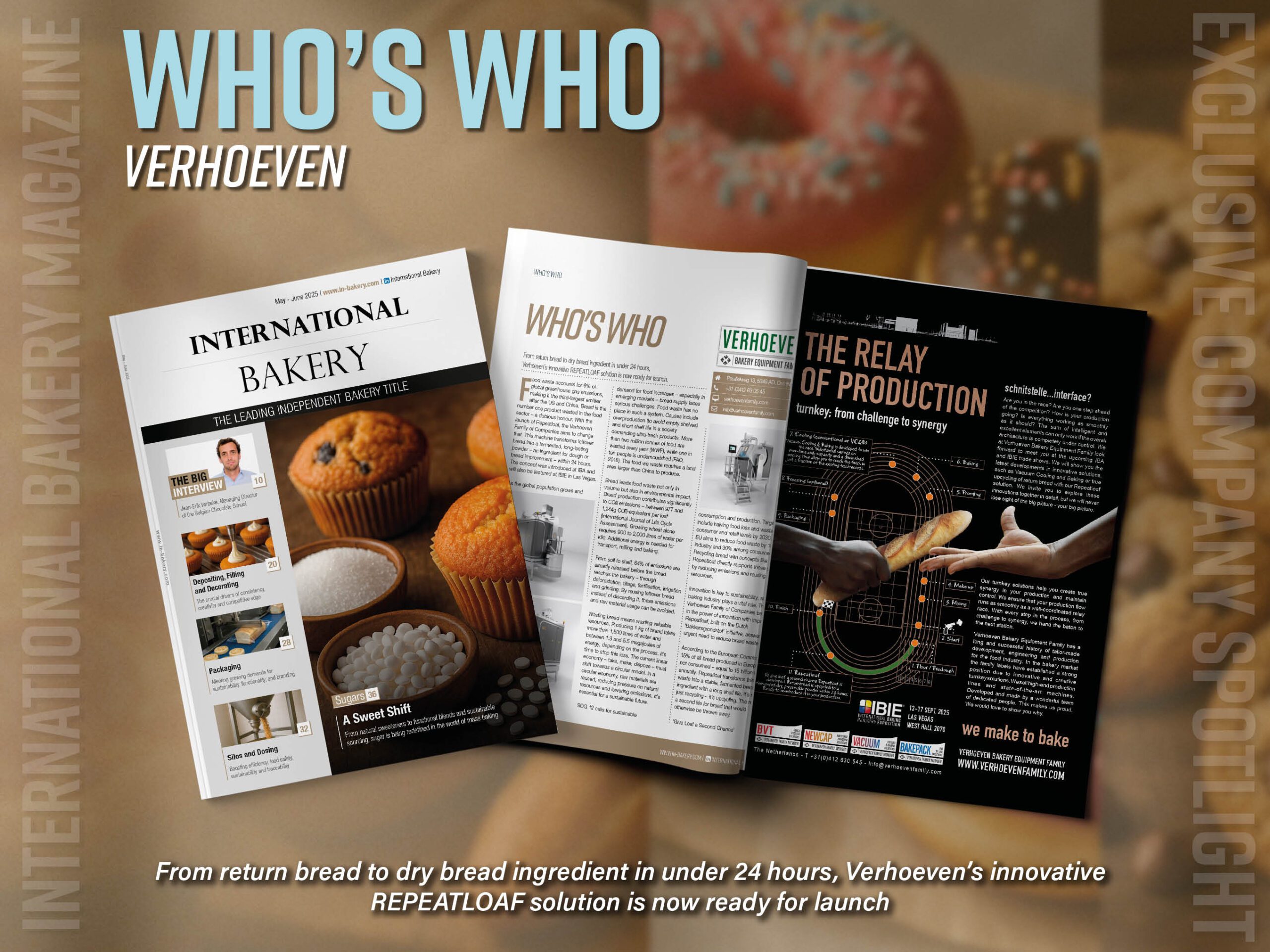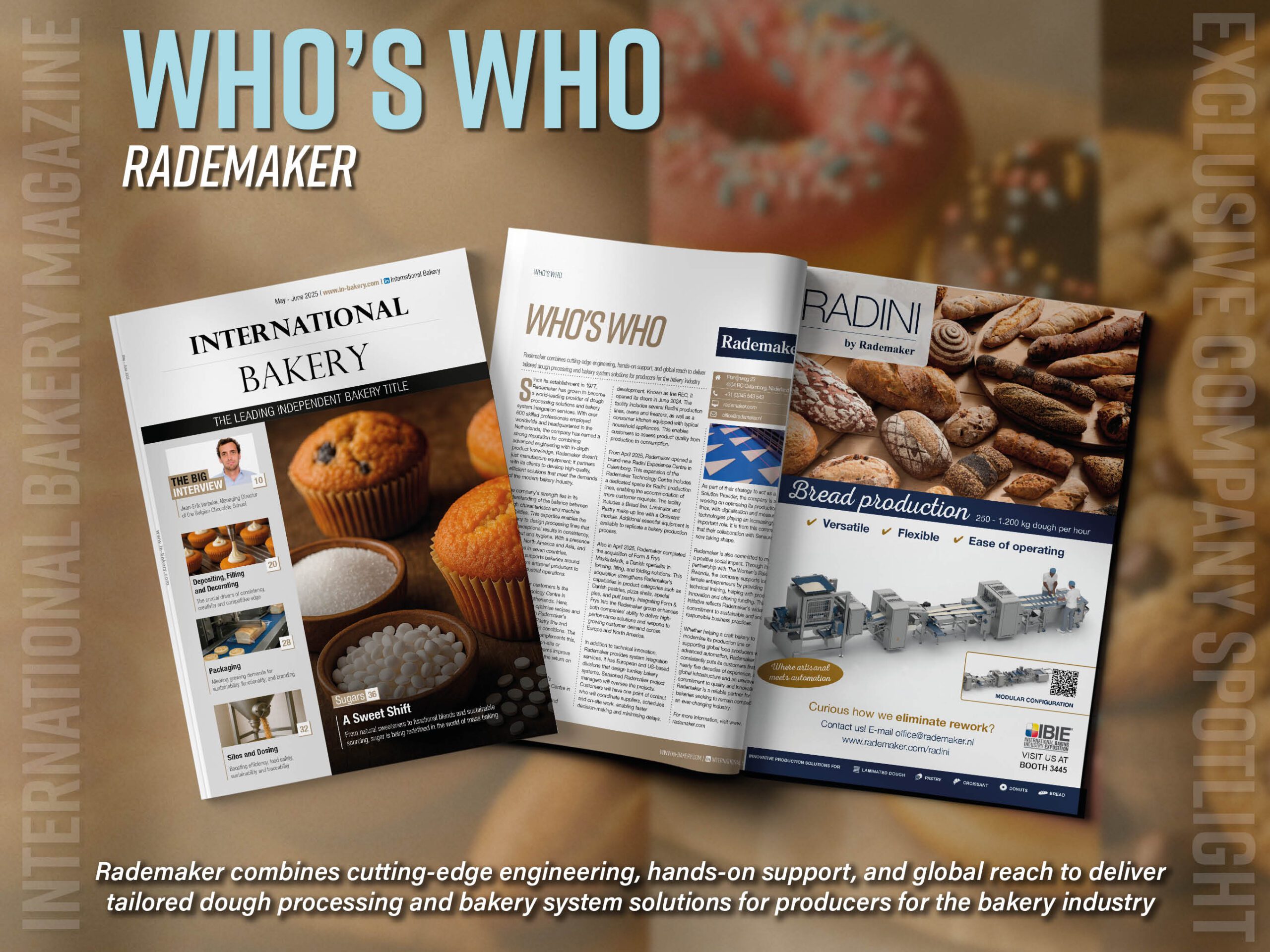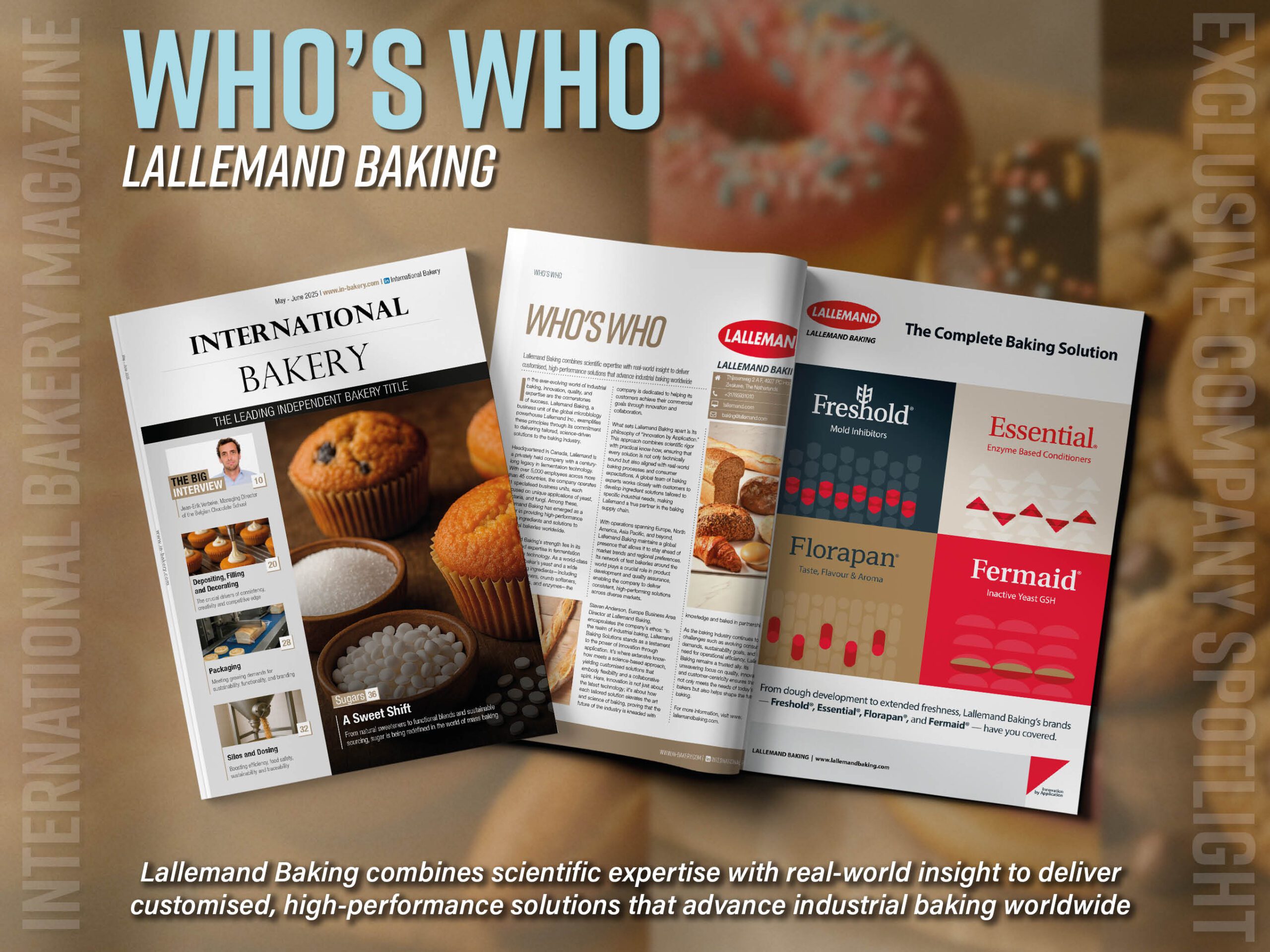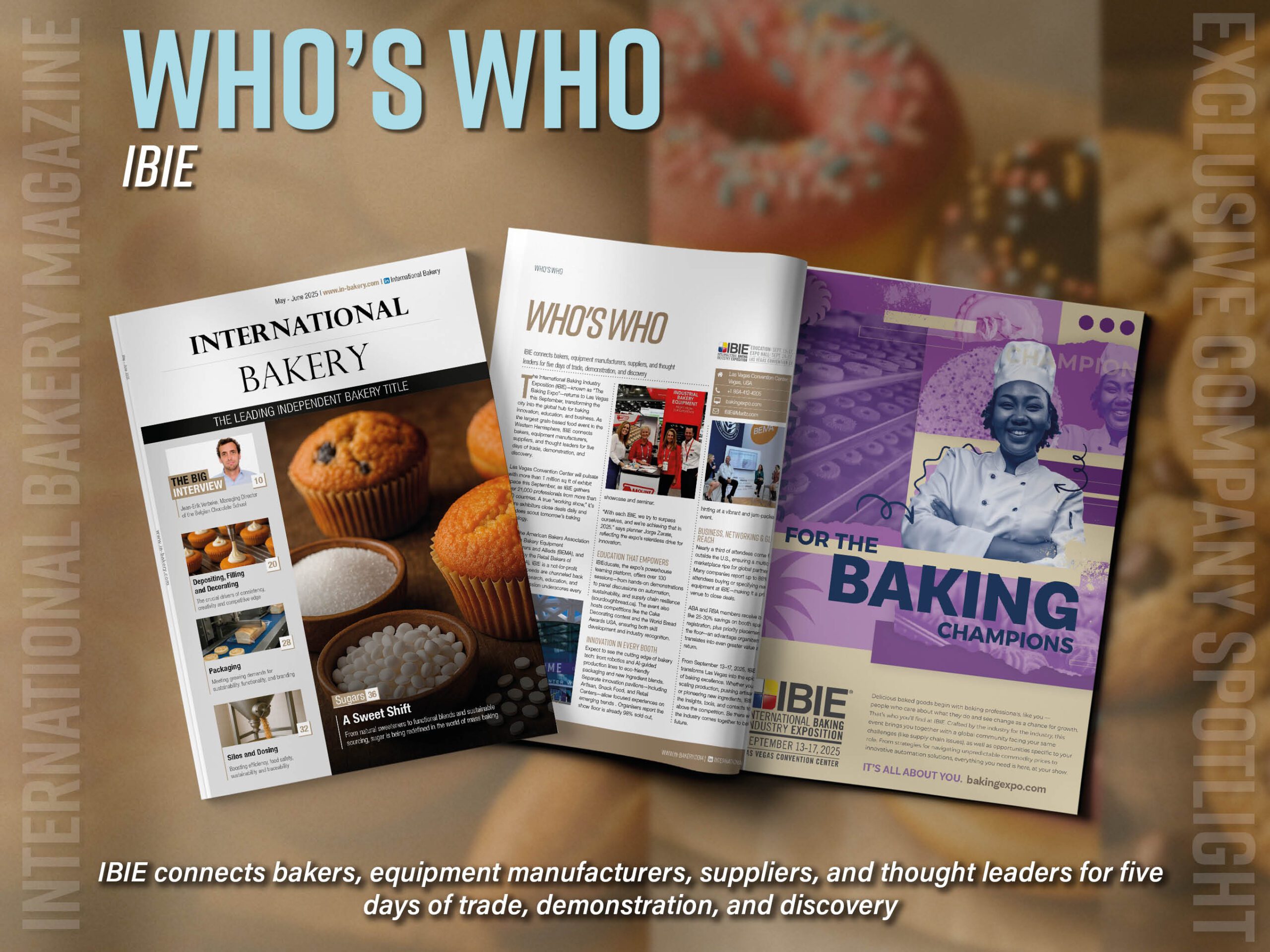Bakery manufacturers must ensure the quality of their ingredients are consistent, here Cargill outlines its regional approach to wheat processing and its sustainability focus to provide new innovations
For food and beverage manufacturers, especially in bakery, it is important to understand the quality of ingredients being used in production. This is especially true for vital wheat gluten, where quality differences can impact both a manufacturer’s production processes and the final product.
Growing conditions, which vary from region to region and year to year, have a huge impact on wheat and gluten quality. Understanding deviations from last year’s crop quality enables manufacturers to adjust production practices for better results. Testing with new samples and if needed, adapting configurations to these insights, can make a difference, both in terms of consumer experiences and manufacturer profitability.
Cargill’s Wheat Sourcing Insight Report 2021 details the importance and methods of our annual quality analysis. It explains the comprehensive testing procedures we use to assess wheat flour and gluten quality characteristics as well as dough properties and provides a summary of our laboratory testing on a variety of wheat-based finished products. The report includes high level insights into this year’s wheat harvest quality and provides guidance on gluten quality, specific to each of Cargill’s plant locations.
Our approach to wheat sourcing
In Europe, Cargill operates four wheat processing plants, spread across Europe’s top wheat production regions. Within each region, farmers deliver their wheat harvest to a central point, where samples are analysed to evaluate quality. Whenever possible, our plants use wheat from the same region year-round, to help deliver product with consistent quality.
As a result, we know the wheat and gluten quality per factory. This allows us to ship product from the supplying location that best aligns with a customer’s specific needs, such as higher protein content, stronger or weaker gluten, or shorter dough. Further, we continue to monitor quality throughout the year to avoid deviations from our wheat quality report data.
Informed by our comprehensive crop quality analysis and baking trial results, customers have the information they need to achieve optimal results. Cargill’s regional approach to sourcing offers another key advantage for customers, as it allows the company to provide wheat and gluten products with a range of quality attributes.
Sustainability focus
“Consumers are increasingly conscious about what they buy, wanting to know exactly where their purchases come from and how they are made. With these insights, the well-informed consumer is more likely to choose products that support sustainability throughout the supply chain, “says James Ede, sustainability lead.
At Cargill, we are working to nourish the world in a safe, responsible, and sustainable way and drive positive change across our supply chains. This includes creating a more sustainable crop supply for our ingredients and applications.
We source certified corn and wheat, benchmarked at Silver level according to the SAI Platform’s Farm Sustainability Assessment. This industry-recognised benchmark system supports good agricultural practices in key sustainability areas, including soil & biodiversity conservation and water quality.
Customer challenges…
Next to sustainability, consumers are taking a healthier stance and are more interested about the health perception of their ingredients in the products they consume and the nutritional profile of the final product.
We see a very strong inclusion of clean label claims in bakery launches in these last years, especially in core markets. Innova database shows four in ten products launched in 2020 boast a clean label claim, which is up from 2019. This is the most prevalent in the largest European markets, but we see other markets falling in step with this trend and expect it to mainstream further.
It’s no surprise then, that the questions we receive from customers in our reformulation projects typically relate to how to maintain the properties of the original product, in terms of taste and texture, formulating out unfavourably perceived ingredients and improving the nutritional properties.
Reformulating a bakery product for health, while achieving a clean label or label-friendly product, is a genuine product development challenge, especially since you can’t compromise on the eating experience.
Secondly, fortification is a general trend in food, with a clear move towards protein and fibre enrichment, and bakery is no exception to this. For brands aiming to up the nutritional profile of their baked goods, our portfolio includes plant proteins and soon a range of soluble fibres – ingredients that are well-suited for inclusion in a range of baked goods, including bread, biscuits, crackers and even sweet baked goods. This trend does not detract from the popularity of plants or vegan claims, which is one of the most prevalent claims for recent sweet bakery launches.
…need agile solutions
Under our INFUSE by Cargill service offering model in Europe, we develop new functional ingredient blends that are suitable for a wide range of bakery products.
The main purpose of INFUSE is to accelerate innovation with our customers, by creating on-trend, functional ingredient blends, that are tailored to specific consumer needs such as nutritional balance, free from and/or plant-based formulation.
By employing a multi-ingredient blending approach and through effective formulation finetuning, this approach can help you create those high-quality products that your customers can enjoy. As just one example of our competencies in vegan bakery applications, INFUSE by Cargill has created a label-friendly ingredient blend, Trilisse GPB 1001, consisting of wheat proteins, native starch and citrus fibre optimised for use in plant-based sponge cakes. It helps to mimic the eating experience of an egg-based recipe, supports water binding and is freeze-thaw stable. It is a robust, versatile solution that can be used in a variety of moist vegan cake-type recipes.
Other solutions are available for the reformulation of cupcakes, loaf cakes, brownies and many more.
In celebration of the one-year anniversary of the INFUSE by Cargill service offering model, our bakery experts baked a full-fledge vegan sponge cake with only recognisable ingredients.
Since its’ launch, our knowhow has resulted in success for our customers in sugar and fat reduction, fibre and protein enrichment, plant-based alternatives and much more.
Understanding the quality of the ingredients used is an essential part of managing the production process. This is where a strong product development partner like Cargill comes into its own with ingredient application support, to address these major technical challenges.
Our approach to quality determination
In addition to our region-specific harvest testing, Cargill continues to monitor wheat and gluten quality throughout the year. This process helps us provide customers with vital wheat gluten products with stable quality attributes, from one month to the next. Our comprehensive testing includes:
Moisture Content
Assessing moisture content is an essential first step in analysing wheat or flour. Wheat with lower moisture is more stable during storage. Flour or wheat with high moisture content attracts moulds, insects and bacteria. Flour millers also use this figure, as they add water to adjust moisture content to a standard level before milling.
Protein Content
Protein content impacts many processing properties, such as water absorption and gluten strength, as well as finished product attributes like texture and appearance. Applications like snacks and cakes often require low protein, while breads, buns, pasta and other yeast-leavened bakery products typically need higher protein levels.
Gluten Strength
Two factors, flour gluten levels and gluten strength, determine the quality of wheat and vital wheat gluten. Gluten strength is measured using the gluten index, regardless of the quantity of gluten present.
Wet gluten is a measure of the quantity of gluten in wheat, determined with the glutomatic system. The wet gluten is then dried to obtain the dry gluten content.
Test Weight
Test weight measures the sample’s density, which may be an indicator for milling yields and the condition of the wheat. When problems occur during the growing season or at harvest, test weight is often reduced.
Falling Number
The falling number measures the enzyme activity (alpha-amylase) in flour coming from sprout damage. A high falling number indicates low activity and vice versa. Optimal baking results require balanced enzyme activity.
The proof of the pudding is in the eating
Going one step further, Cargill is also capable of performing baking trial testing, which allows us to provide customers with product evaluation data that provides insights into actual processing performance and end product quality. This includes laboratory testing on a variety of wheat-based finished products.
Starch bread is a simple recipe used to demonstrate gluten strength without interference from flour variations and interaction with other components.
We conduct this evaluation on a routine basis at all our wheat processing facilities, rating both the baking quality and the dough performance of each location’s gluten using these tests:
On top of that, we have extensive experience in trialling whole wheat bread, bran bread or sponge and dough bread. Our application centre in Vilvoorde is fully equipped for any bake-off: we trial our ingredients and monitor the quality of the end-results in such applications as biscuits, crackers, snacks, bars, and muffins.
To stay up to date on the latest, trends, innovations, people news and company updates within the global bakery market please register to receive our newsletter here.
Media contact
Roshini Bains
Editor, International Bakery
Tel: +44 (0) 1622 823 922
Email: editor@in-bakery.com






